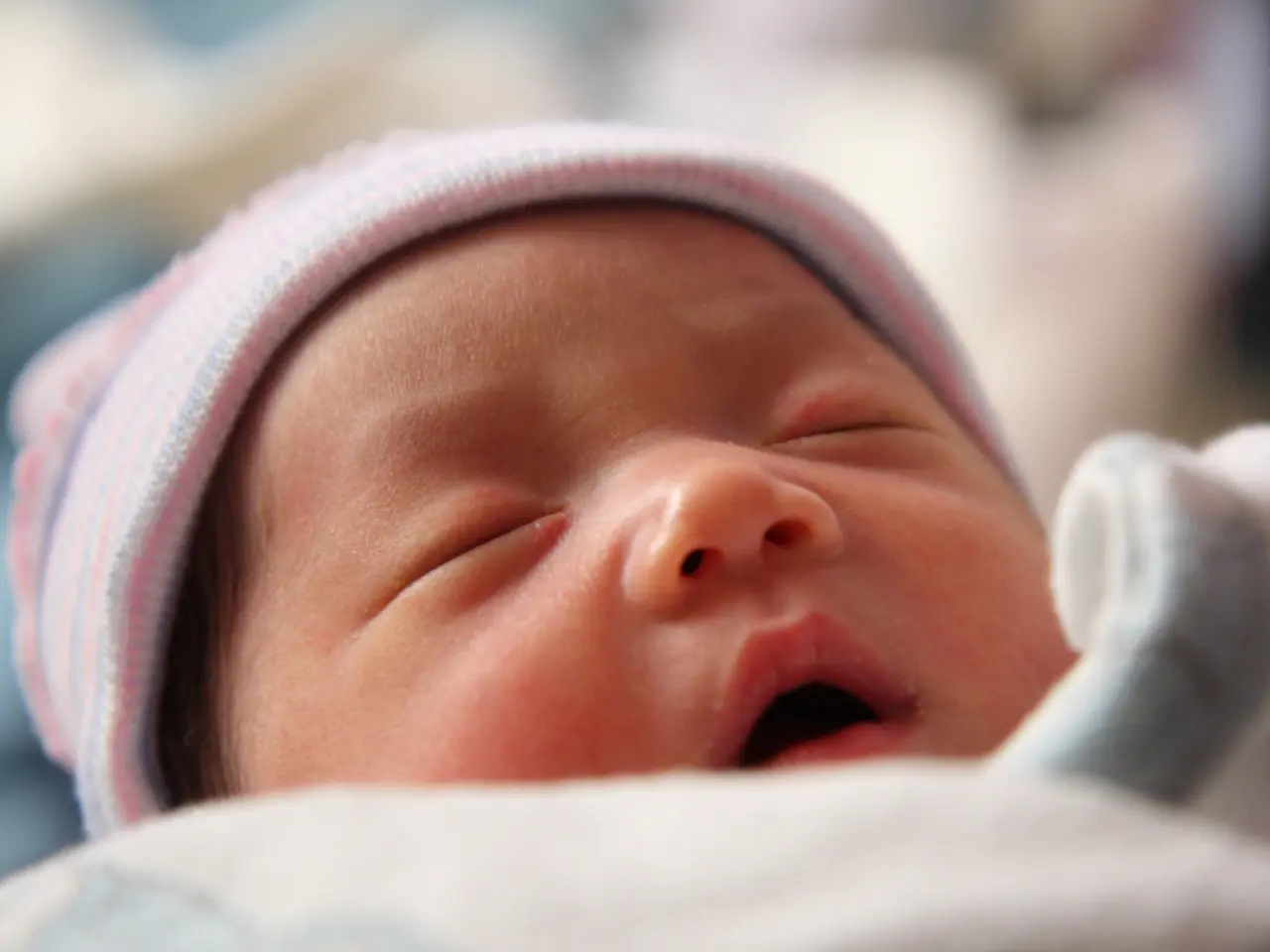Strategies for Helping a Child with ADHD Suffering from Insomnia: 6 Suggestions
Children with Attention Deficit Hyperactivity Disorder (ADHD) often face challenges in getting a good night's sleep. Up to 95% of children with neurodevelopmental disorders, including ADHD, experience trouble sleeping, making it a common issue for families.
However, there are effective strategies to help children with ADHD sleep better.
Establishing a Consistent Routine
One of the key strategies is to establish a consistent bedtime routine. This involves setting and maintaining a regular sleep and wake schedule to regulate the internal clock disrupted by ADHD's time-blindness.
Meditation and Relaxation Techniques
Incorporating calming meditation or relaxation techniques, such as the 4-7-8 method, body scanning, and progressive muscle relaxation, can help reduce physical tension and racing thoughts common in ADHD.
Managing Daytime Energy and Activity
Providing opportunities for physical exercise and rest breaks during the day, and balancing high-energy activities with calming ones, especially after school, can help manage the energy levels of children with ADHD.
Limiting Screen Time Before Bed
Turning off electronic devices at least one hour before bedtime can help avoid late-night stimulation that can worsen sleep onset difficulties.
Addressing Pre-Sleep Arousal
Since many children with ADHD experience heightened cognitive arousal before sleep, relaxation techniques targeting this can improve sleep initiation.
For younger children, using reward-based systems to encourage adherence to sleep routines may be beneficial.
Other Causes of Sleep Problems
Other causes of sleep problems in children with ADHD include stress, anxiety, big changes, traumatic events, nightmares, coexisting sleep disorders like restless leg syndrome or disordered breathing during sleep, and nightmares.
If a child's insomnia is severe, causes disruption at home or school, or does not respond to behavioral changes, it is advisable to speak with a doctor, preferably a pediatrician who has a good knowledge of ADHD in children.
Behavioral changes to sleep-related behaviors, such as bedtime routines, can be very effective in treating behavioral insomnia in children with ADHD and can lead to long-term improvements in sleep, ADHD symptoms, and daily functioning.
It's important to note that the Food and Drug Administration (FDA) does not have any medication for sleep disorders in kids, and giving sleeping pills to a child without a doctor's guidance can be dangerous. Melatonin supplements can interact with other drugs and cause side effects, and should not be given to a child unless a doctor recommends it.
A 2010 review found that melatonin may be an effective sleep aid for children with ADHD, but larger studies are needed to confirm its safety in the long term.
Cognitive behavioral therapy may be helpful for addressing nighttime fears or phobias that are preventing sleep in older children with ADHD. Encouraging children to do quiet activities if they wake up during the night, such as reading a book, listening to an audiobook, or listening to relaxing music, can also help them fall back asleep.
Adults with ADHD also experience insomnia, with 66.8% of adults with the disorder experiencing insomnia compared to 28.8% of adults without ADHD. Stimulant medications, a common treatment for ADHD, can increase the activity of the central nervous system and insomnia is one of the most frequently reported side effects.
By implementing these strategies, caregivers can help children with ADHD establish healthy sleep habits, reduce anxiety and dependence on caregivers, and create a relaxing sleep environment, leading to better sleep and improved daily functioning.
- Children with Attention Deficit Hyperactivity Disorder (ADHD) often experience significant sleep difficulties, with up to 95% of them having trouble sleeping.
- Establishing a consistent bedtime routine is a key strategy to help children with ADHD sleep better.
- Incorporating calming meditation or relaxation techniques can help reduce the physical tension and racing thoughts common in children with ADHD.
- Managing daytime energy and activity by providing opportunities for exercise and rest breaks can help manage the energy levels of children with ADHD.
- Limiting screen time before bed can help avoid late-night stimulation that can worsen sleep onset difficulties.
- Addressing pre-sleep arousal can improve sleep initiation for children with ADHD.
- For younger children, using reward-based systems to encourage adherence to sleep routines can be beneficial.
- Other causes of sleep problems in children with ADHD include stress, anxiety, big changes, traumatic events, nightmares, coexisting sleep disorders, and nightmares.
- If a child's insomnia is severe, causing disruption at home or school, or not responding to behavioral changes, it is advisable to speak with a doctor.
- Behavioral changes to sleep-related behaviors can be very effective in treating behavioral insomnia in children with ADHD.
- The Food and Drug Administration (FDA) does not have any medication for sleep disorders in kids, and giving sleeping pills to a child without a doctor's guidance can be dangerous.
- Melatonin supplements may be an effective sleep aid for children with ADHD, but larger studies are needed to confirm its safety in the long term.
- Cognitive behavioral therapy may be helpful for addressing nighttime fears or phobias in older children with ADHD.
- Adults with ADHD also experience insomnia, and stimulant medications, a common treatment for ADHD, can increase insomnia as one of the most frequently reported side effects. By implementing these strategies, caregivers can help children with ADHD establish healthy sleep habits and improve their daily functioning.




